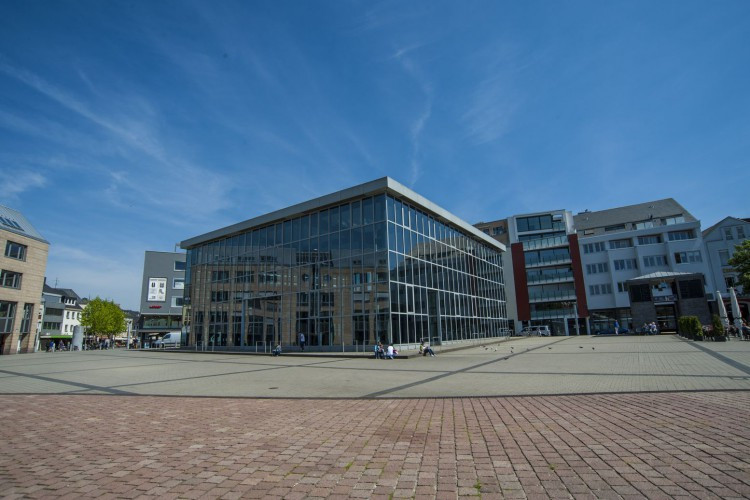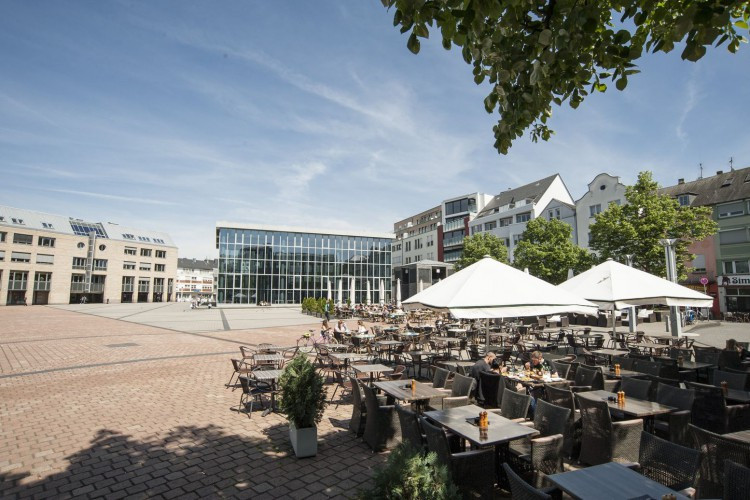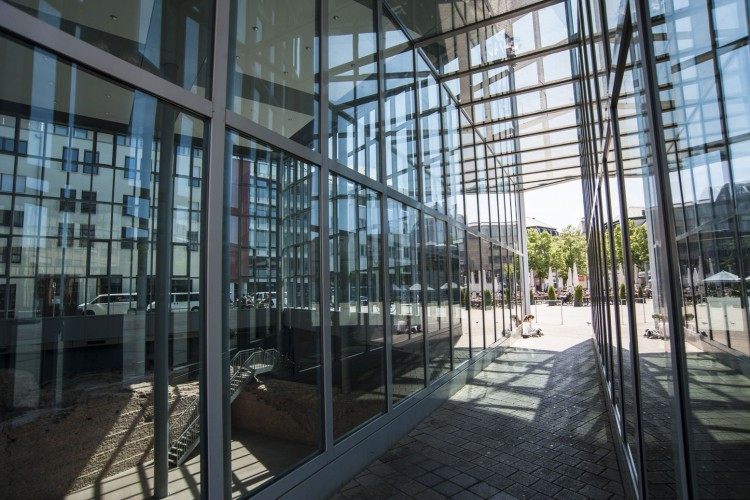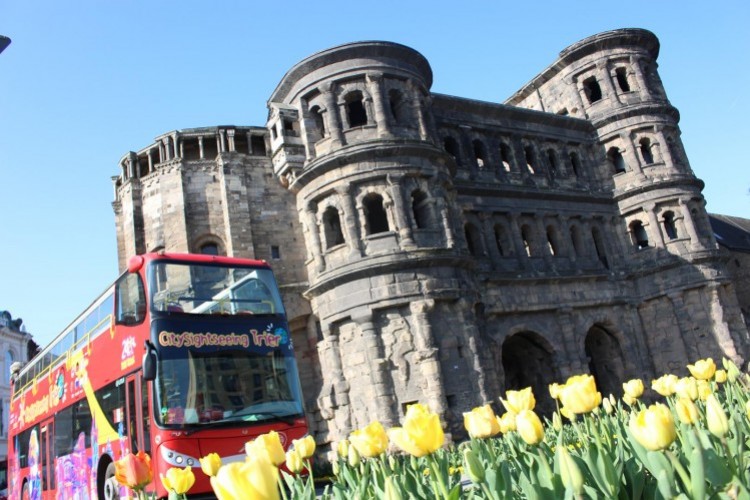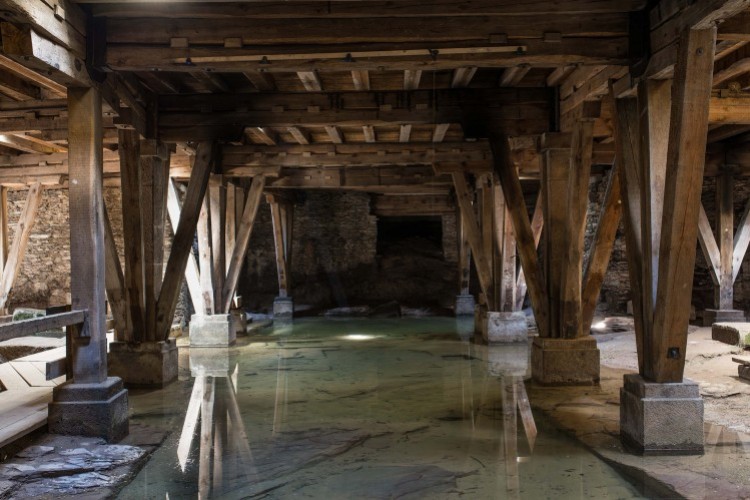Read more
The find was so spectacular that the underground car park originally planned for the site had to be moved slightly to the south-west, and the ruins overlaid with a glass structure designed by Eifel-born architect Oswald Mathias Ungers. The 30x30-metre cube harmonises with the perpendicular streets surrounding it: The square paving stones soar twelve metres high as square glass windows, while still allowing visitors to look several metres down into the ground. But as tremendous as this view may be, the bird’s eye perspective can’t replace an actual visit to the Forum Baths. Only then can you truly appreciate how gigantic the complex must have been. And its location right at the junction between the two main Roman roads and by the Roman forum is no accident: ‘Cardo maximus’ and ‘Decumanus maximus’ are today still marked out on the ground in red cobblestones.
A must for: Ruin-discoverers. Glass fetishists. Imperial-capital explorers and bath pilgrims.
Glass: 50%
Stone: 20%
Square: 30%
PSSSST! THE INSIDER TIP:
Every January, the Forum Baths at the Viehmarkt host the ‘Weinforum’, one of the region’s most popular wine events. Over the three days, wine experts and enthusiasts, winegrowers, Wine Queens and prize-winners all gather to discuss some 200 different drops in the historic setting. Tickets go on sale at the end of the year prior, and usually sell out very fast – so if you’re a quick decision-maker, you’ll be at an advantage.
A must for: Ruin-discoverers. Glass fetishists. Imperial-capital explorers and bath pilgrims.
Glass: 50%
Stone: 20%
Square: 30%
PSSSST! THE INSIDER TIP:
Every January, the Forum Baths at the Viehmarkt host the ‘Weinforum’, one of the region’s most popular wine events. Over the three days, wine experts and enthusiasts, winegrowers, Wine Queens and prize-winners all gather to discuss some 200 different drops in the historic setting. Tickets go on sale at the end of the year prior, and usually sell out very fast – so if you’re a quick decision-maker, you’ll be at an advantage.

